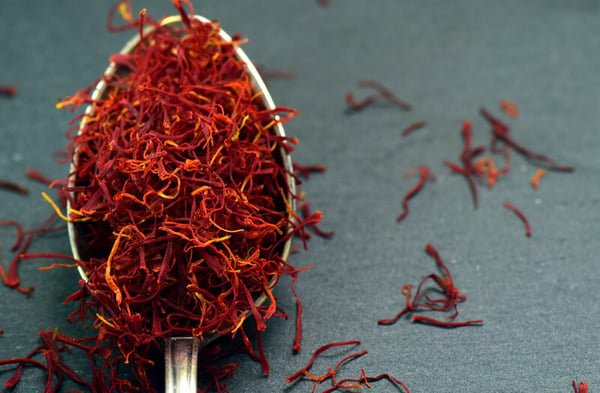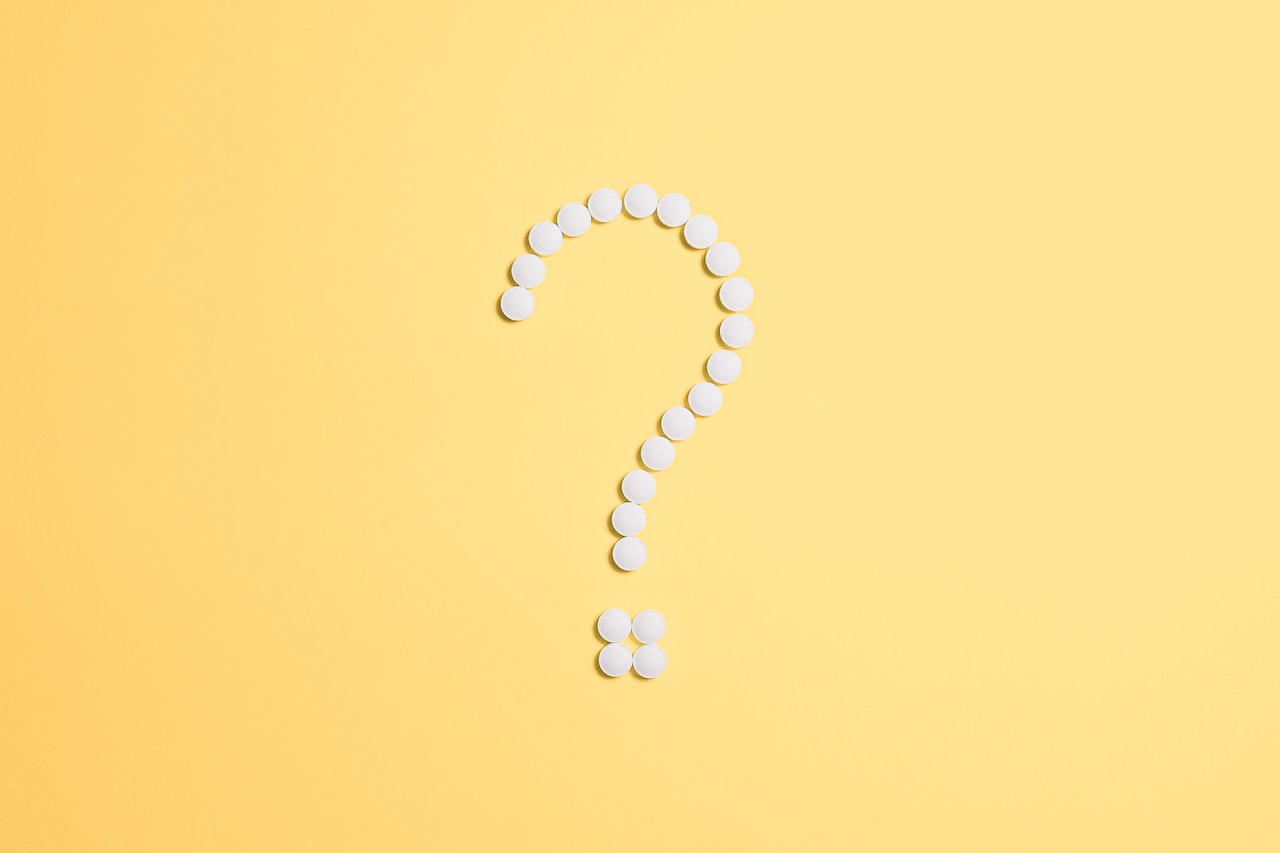A quick Google search suggests that saffron might be “as effective” in treating ADHD as Ritalin. Can that really be true? We’re taking a look at a few recent studies to find out whether or not you should immediately dump your medication and switch to spices and food supplements instead.
Quick hint: Don’t dump your medication! Every change in your medication regimen should be discussed with your physician first. The same goes for taking any nutritional supplements.
💊 Disclaimer: The information provided in this article is for educational purposes only and is not intended to diagnose, treat, cure, or prevent any disease or condition. It is not a substitute for professional medical advice. You should always consult a healthcare provider before making changes to your healthcare regimen. The writers and editors do not assume any liability for the accuracy, completeness, or usefulness of the information provided.
Too long; didn’t read
- In ancient times, saffron was used to treat many medical ailments.
- Today, the various effects of saffron treatments are being investigated by scientists.
- There’s a growing list of potential medical applications of saffron, including its use as an antidepressant and ADHD treatment.
- There are several reasons to be skeptical about saffron as an effective ADHD management supplement, which are discussed below.
Saffron as an ADHD treatment: What does the research say?
In the last four years, at least four pilot studies examining the effects of saffron on ADHD symptoms were published.
Baziar et al. (2019)1
Study type: Randomized, double-blind
Participants: 50 adolescents with ADHD (aged 6 - 17)
Groups: MPH group (methylphenidate*, MPH) and saffron group (saffron capsules)
Parent and teacher evaluation scores were collected for the study participants at week 3 and week 6. There was not a significant difference in symptom severity between the two groups. The frequency of side effects was similar in both groups.
Conclusion: Saffron could potentially be as effective as methylphenidate for short-term treatment of ADHD, but larger studies with control groups and longer treatment periods are needed in the future.
*Methylphenidate brand names: Ritalin, Concerta, Daytrana etc.
Khaksarian et al. (2021)2
Study type: Randomized, double-blind
Participants: 70 adolescents with ADHD (aged 6 - 16)
Groups: MPH group (methylphenidate, MPH) and saffron group (MPH plus saffron)
Parent and teacher evaluation scores were collected for the study participants in week 4 and week 8. In week 4, the saffron group had already reached the same average score the MPH-only group would reach in week 8.
Conclusion: A combination of saffron and methylphenidate may be more effective than methylphenidate alone. Prescribing MPH in combination with saffron, treatment effectiveness can be improved and duration reduced.
Blasco-Fontecilla et al. (2022)3
Study type: not randomized
Participants: 63 adolescent ADHDers (aged 7 - 17)
Groups: MPH group (methylphenidate, MPH) and saffron group (saffron capsules)
This study used various tests to evaluate the prevalence and severity of ADHD symptoms. Researchers used parent-teacher rating scales and a task-based test to measure the executive functioning skills of participants.
Conclusion: Saffron may be equally as effective as MPH for ADHD treatment. Methylphenidate was more effective at improving inattention, while saffron was more effective for hyperactivity symptoms. Additionally, saffron is more effective at helping with falling asleep.
Pazoki et al. (2022): the first randomized, double-blinded, and placebo-controlled saffron trial in adults4
Study type: Randomized, double-blind
Participants: 48 adults with ADHD
Groups: Control group (Ritalin plus placebo) and saffron group (Ritalin plus saffron)
At three and six weeks, ADHD symptoms were assessed with two different rating scales. (Self-assessment and the Conners’ adult ADHD rating scale)
At the end of the study, participants in the saffron group self-reported a more significant improvement in symptoms than the control. The scores on the Conners' scale were similar.
Conclusion: Combining Ritalin and saffron can be an effective treatment for ADHD.
Does saffron help with ADHD symptoms?
Saffron has shown potential benefits for people with ADHD. It may help reduce hyperactivity and improve sleep patterns, as demonstrated by research on saffron and its effects on ADHD.
However, more research is needed to know for sure.
How was saffron dosed for ADHD treatment?
For children, saffron dosage depends on their weight. In the studies mentioned above, children were given saffron doses between 20 mg and 30 mg daily.
Adults received between 50 mg and 80 mg daily. However, one could safely consume up to 100 mg each day.
⚠️ Warning: Consuming saffron at high doses can be toxic.
How does saffron work to treat ADHD symptoms?
Let's take a look at how saffron - and saffron extract - functions at the neurochemical level to help improve ADHD symptoms.
Proposed mechanism of action for saffron and saffron extract
- Norepinephrine (precursor to epinephrine, aka adrenaline) and dopamine are brain chemicals (neurotransmitters) that increase alertness, pleasure, and attention, among other things.
- Saffron is a norepinephrine and dopamine reuptake inhibitor (NDRI), a type of antidepressant.
- Typically, the brain collects and recycles leftover norepinephrine and dopamine molecules through a process called "reuptake".
- When prescribed an NDRI, there's more accumulation of norepinephrine and dopamine in the brain. In other words, instead of the unused molecules immediately being recycled, they're given more time to be put to use.
- This mechanism also describes how certain nonstimulant ADHD medications work, specifically bupropion (Wellbutrin).
Does saffron have fewer side effects than stimulant medication?
Available research shows no notable differences in the side effects between ADHD stimulant medication and saffron. All studies on the efficacy of saffron in ADHD treatment concluded that there was no significant difference in the frequency and severity of side effects.
This implies that saffron and methylphenidate, a commonly prescribed stimulant medication for ADHD, have similar side effects at similar rates.
Other medical applications of saffron
Crocus sativus - saffron - has been used for thousands of years, likely originating in modern-day Iran. Throughout history, saffron has been widely used for various medical applications; it was even used to treat wounds and eye diseases.5
People who could afford it (i.e., royalty) would also dye fabric or add it to their wine to avoid hangovers. Cleopatra is said to have bathed in milk with saffron. It was generally regarded as good for overall health.
Currently, there’s a long list of potential medical applications for saffron.6 For example, saffron may:
- improve mood
- have anti-cancer properties
- reduce PMS symptoms
- reduce pain
- have anti-inflammatory capacities
- have antioxidative capabilities
- be used as an antidepressant
- fight against neurodegenerative diseases like Alzheimer’s
Antidepressant
Saffron's best-documented medical use is its potential as an antidepressant.
Over the past few years, several studies looked at the effects of saffron on symptoms related to depression and anxiety and compared them to traditional antidepressants. Researchers concluded that saffron has positive effects on mild to moderate depressive symptoms.7,8,9
However, the use of saffron as an official antidepressant is not researched well enough.
Antioxidant
Saffron is also believed to possess antioxidative qualities10, meaning that it can have potential benefits for overall health.
What are "antioxidants"? Why are they important?
ℹ️ Definitions:
- Antioxidants slow down the oxidation of other molecules in the body.
- Oxidation is a chemical reaction that produces free radicals in the body.
- Free radicals are molecules that can damage cells and tissues.
Oxidative stress is a condition caused by excess free radicals in the body, leading to cell damage and chronic disease development. Antioxidants reduce the harmful effects of free radicals and repair damaged cells. (That's why many beauty products contain ingredients with antioxidative properties!)
Is saffron a realistic ADHD medication alternative?
It seems now that saffron is an effective treatment for ADHD, right?
Well, not so fast...
👀 Psst! If you want to learn more about natural alternatives to ADHD meds...
Check out our article on ginkgo biloba for ADHD, or if you want to know about natural brain boosters, read about nootropics for ADHD!
Reasons to be skeptical about saffron as an ADHD treatment
The studies have limitations.
First of all, the groups in all four studies were relatively small, and the duration of the studies was rather short.
Secondly, only one study used objective measurements of ADHD symptoms, and that study did not assign participants randomly to groups.
Thirdly, three of these studies were conducted in Iran, the world’s largest producer of saffron. (Possible bias)
Lastly, among the studies, there are analytical reviews that cite research conducted on non-human test subjects, specifically mice.
Currently, there's a limited understanding of the long-term effects of saffron. So, more research is needed to replicate the results of previous studies on a larger scale and with extended follow-up treatment.
Supplements are unregulated and expensive.
The biggest problem with using saffron as an ADHD medication is that it's not FDA-approved, which inherently means it's neither well-researched nor regulated. On top of that, saffron food supplements are expensive.
Wait... How expensive??
Saffron is the most expensive spice. Online, you can buy an ounce of saffron for about $120 USD, or $4.23 per gram. If you were to take 100mg of saffron daily, you would get about 283 doses of saffron out of that purchase.
To simplify the math, one month of saffron supplements would add around $13 to your ADHD expenses.**
**This is a low estimation. Average costs are higher.
Final thoughts
Saffron has the potential to be a natural alternative or supplement for ADHD treatment in the future. For now, though, the research doesn’t back up its use as ADHD medication.
If more studies with larger sample sizes and longer study periods prove saffron to be an effective ADHD treatment and the FDA approves its use for ADHD, saffron or saffron extract could become a viable alternative ADHD medication at some point in the future.
Sources
1 Journal of Child and Adolescent Psychopharmacology | Crocus sativus L. Versus Methylphenidate in Treatment of Children with Attention-Deficit/Hyperactivity Disorder: A Randomized, Double-Blind Pilot Study (2019)
2 Iranian Journal of Psychiatry and Behavioral Sciences | A Comparison of Methylphenidate (MPH) and Combined Methylphenidate with Crocus sativus (Saffron) in the Treatment of Children and Adolescents with ADHD: A Randomized, Double-Blind, Parallel-Group, Clinical Trial (2021)
3 Nutrients | Effectivity of Saffron Extract (Saffr’Activ) on Treatment for Children and Adolescents with Attention Deficit/Hyperactivity Disorder (ADHD): A Clinical Effectivity Study (2022)
4 Advances in Integrative Medicine | Efficacy and safety of saffron as adjunctive therapy in adults with attention-deficit/hyperactivity disorder: A randomized, double-blind, placebo-controlled clinical trial (2022)
5 Molecules | Saffron: An Old Medicinal Plant and a Potential Novel Functional Food (2018)
6 Cosmetics | Traditional and Modern Uses of Saffron (Crocus Sativus) (2019)
7 Psychology Research and Behavior Management | The efficacy of Crocus sativus (Saffron) versus placebo and Fluoxetine in treating depression: a systematic review and meta-analysis (2109)
8 Nutrition Reviews | Effect of saffron supplementation on symptoms of depression and anxiety: a systematic review and meta-analysis (2019)
9 Neuropsychiatric Disease and Treatment | Comparative efficacy and safety of Crocus sativus L. for treating mild to moderate major depressive disorder in adults: a meta-analysis of randomized controlled trials (2018)
10 Frontiers in Medicine | Effect of saffron supplementation on oxidative stress markers (MDA, TAC, TOS, GPx, SOD, and pro-oxidant/antioxidant balance): An updated systematic review and meta-analysis of randomized placebo-controlled trials (2023)








